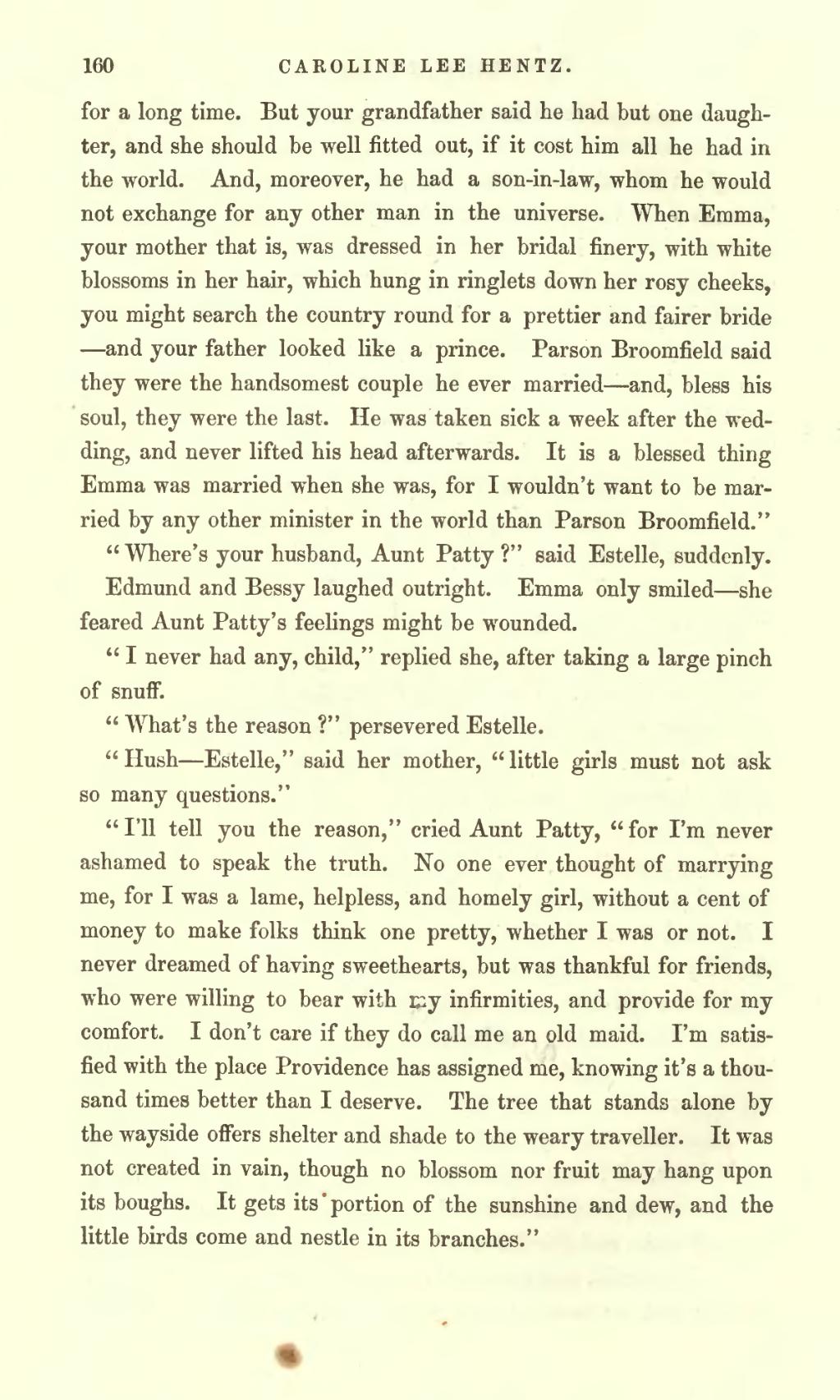for a long time. But your grandfather said he had but one daughter, and she should be well fitted out, if it cost him all he had in the world. And, moreover, he had a son-in-law, whom he would not exchange for any other man in the universe. When Emma, your mother that is, was dressed in her bridal finery, with white blossoms in her hair, which hung in ringlets down her rosy cheeks, you might search the country round for a prettier and fairer bride—and your father looked like a prince. Parson Broomfield said they were the handsomest couple he ever married—and, bless his soul, they were the last. He was taken sick a week after the wedding, and never lifted his head afterwards. It is a blessed thing Emma was married when she was, for I wouldn’t want to be married by any other minister in the world than Parson Broomfield.”
“Where’s your husband, Aunt Patty?” said Estelle, suddenly.
Edmund and Bessy laughed outright. Emma only smiled—she feared Aunt Patty’s feelings might be wounded.
“I never had any, child,” replied she, after taking a large pinch of snuff.
“What’s the reason?” persevered Estelle.
“Hush—Estelle,” said her mother, “little girls must not ask so many questions.”
“I’ll tell you the reason,” cried Aunt Patty, “for I’m never ashamed to speak the truth. No one ever thought of marrying me, for I was a lame, helpless, and homely girl, without a cent of money to make folks think one pretty, whether I was or not. I never dreamed of having sweethearts, but was thankful for friends, who were willing to bear with my infirmities, and provide for my comfort. I don’t care if they do call me an old maid. I’m satisfied with the place Providence has assigned me, knowing it’s a thousand times better than I deserve. The tree that stands alone by the wayside offers shelter and shade to the weary traveller. It was not created in vain, though no blossom nor fruit may hang upon its boughs. It gets its portion of the sunshine and dew, and the little birds come and nestle in its branches.”
